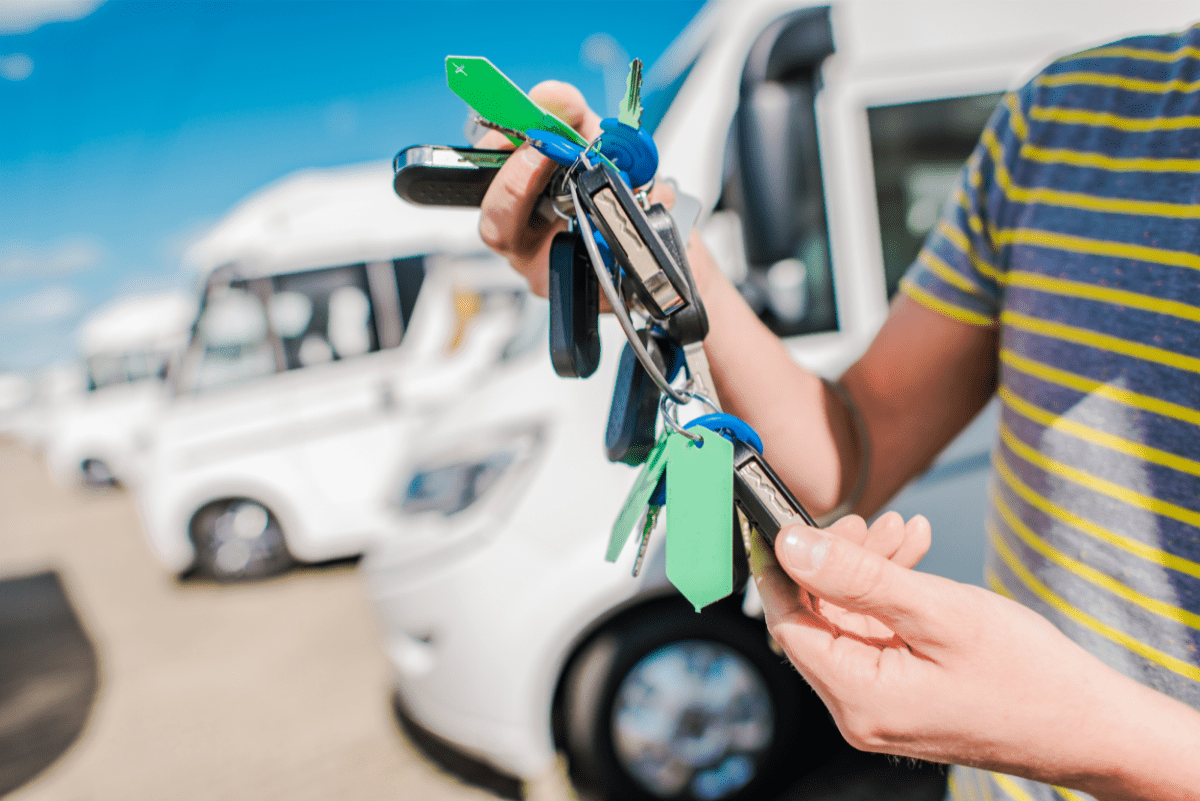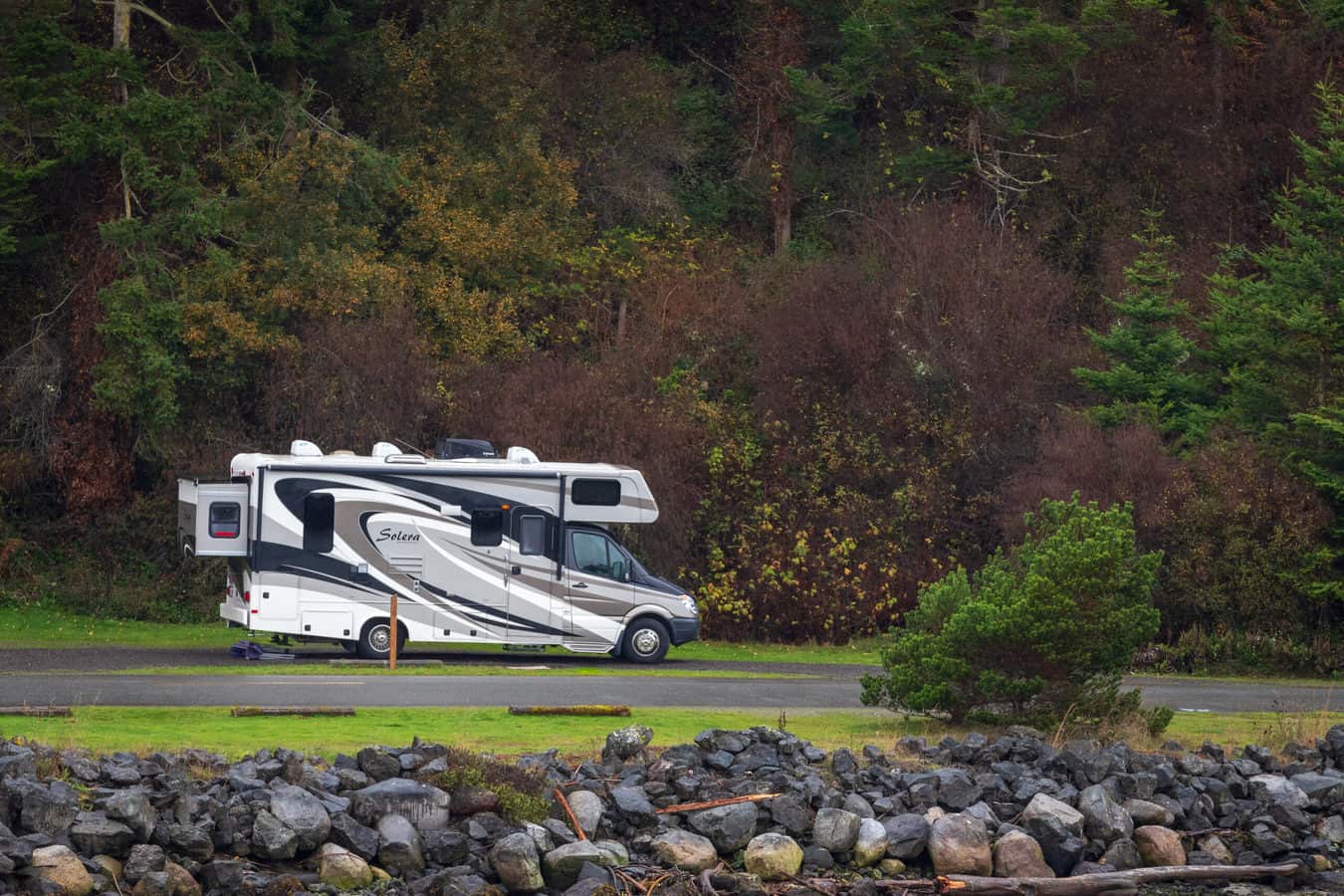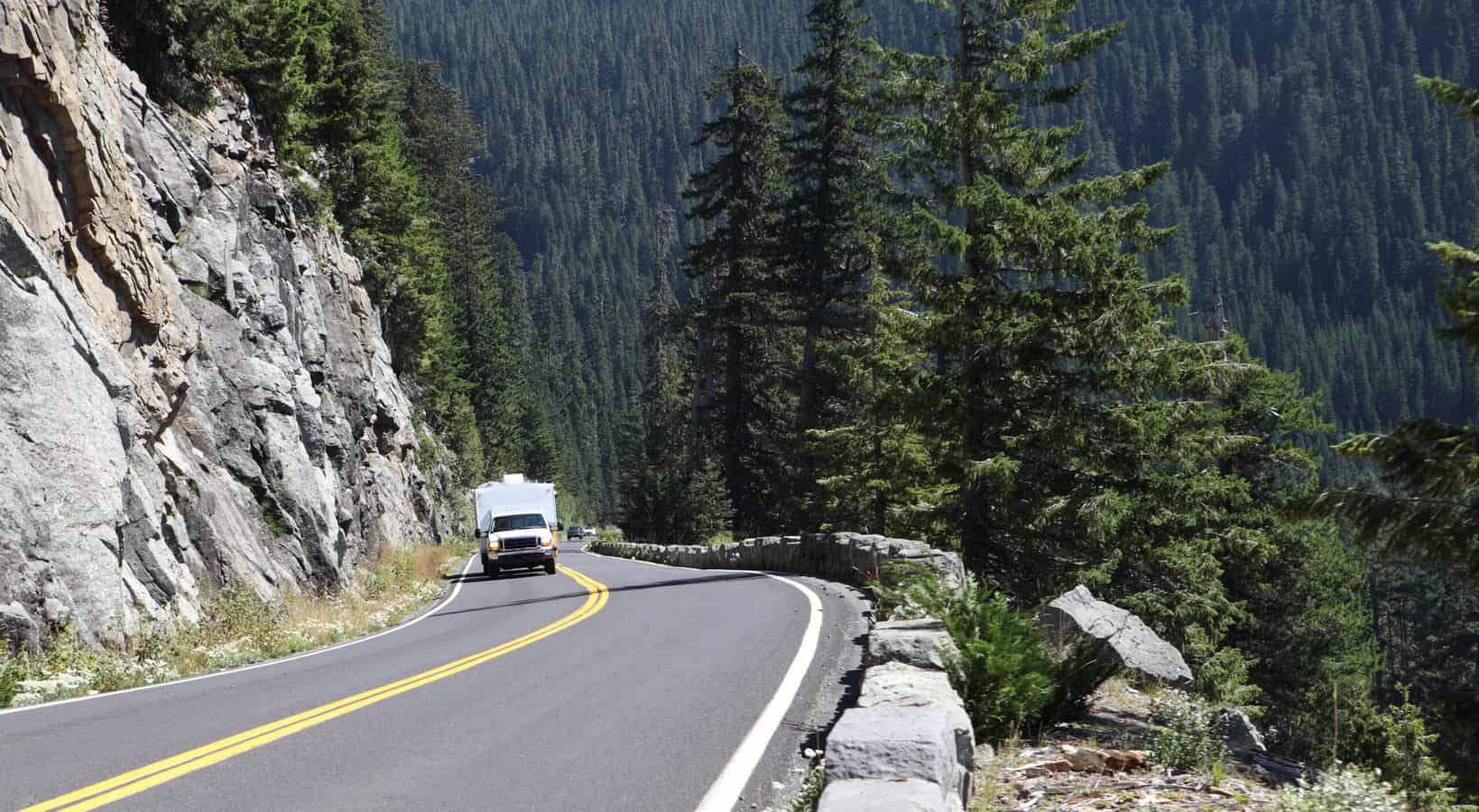An RV is a serious investment and buying one should not be taken lightly. Many people opt to buy a pre-owned RV rather than a new one due to the lower price. This practice is fine, but there are certain things you should look for to avoid an unfavorable deal.

In many cases, the seller may not be consciously trying to take advantage of you, but they often end up charging more than the vehicle is worth (whether intentionally or not). Underlying damage may be hard to spot at first, but it can wreak havoc on your RV down the road.
It’s important to understand the value of each RV you look at and examine the whole thing for any hidden flaws or issues. Below we have a simple guide of a few things to watch out for if you’re in the market for a pre-owned RV. Even less-expensive models cost a lot of money, so it’s worthwhile to do your research!
Dealer or private owner?
If you’re interested in a pre-owned RV, the first thing you need to do is decide where you will buy from. There are tons of forums and resources available for those who want to buy and sell RVs. Your two main options will be to go through an RV dealership or buy from a private seller. Both have their own pros and cons.
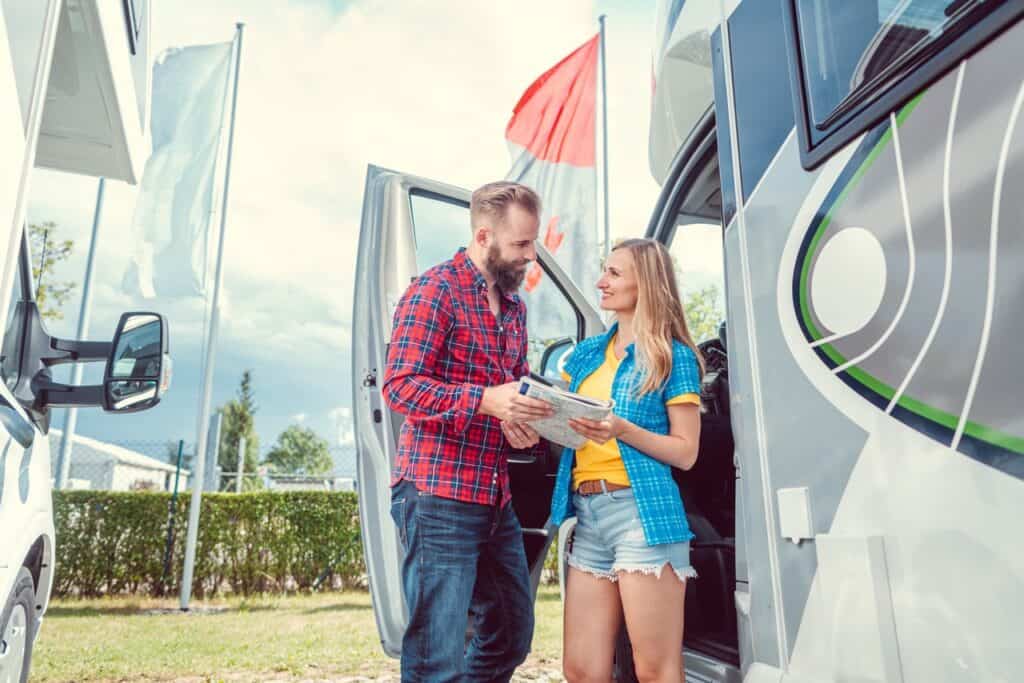
When you’re dealing with a private seller, there are a lot of unknowns. They may not have all the paperwork to confirm records of maintenance, repairs, or upgrades. You’ll find a large range of prices when you go through private sellers, which can be good or bad.
The seller could be pricing the RV cheaply because they just want to get rid of it. In other cases, they may mark it up because they don’t have records to show that it’s seen a fair amount of wear and tear. They could also be counting on some haggling, so they may price it higher than they expect to sell it for.
As a general rule: Be wary of deals that seem too good to be true.
On the other hand, a dealership is often more expensive, but more trustworthy as well. They’re likely to have documentation on the RVs they are selling, as well as qualified mechanics and inspectors who can confirm the condition of each vehicle. Because of this quality assurance, they can afford to make up their prices more than the average private seller.
No matter who you choose to buy from, it might be worthwhile to insist on an additional inspection or perform one yourself.
Confirm manufacturing year/original price
Let’s talk depreciation. This is terrible for people who bought their RVs new and are attempting to sell them. However, it can be a real benefit to those who are in the market for a pre-owned RV.
If you want to know how to buy an RV without getting ripped off, you’ll need to know the average rate of depreciation for RVs. As time goes on, an RV will be worth less and less money. There are a lot of variables to the problem, but an RV will usually depreciate between 20%–30% each year until it’s about 10 years old. At that point, it’s worth 50% or less of the original price.
When you’re looking at a pre-owned RV, always confirm the original year and model. You can then look up the original MSRP and compare it to the asking price. For instance, if someone is selling a 10-year-old RV for anything more than 50% of the original price, you’re probably being scammed.
Do some cross-referencing research as well. Look for models of a similar shape, size, and brand that are listed for sale. You’ll be able to spot if someone is pricing theirs higher or lower than the average asking rate.
Take a test drive
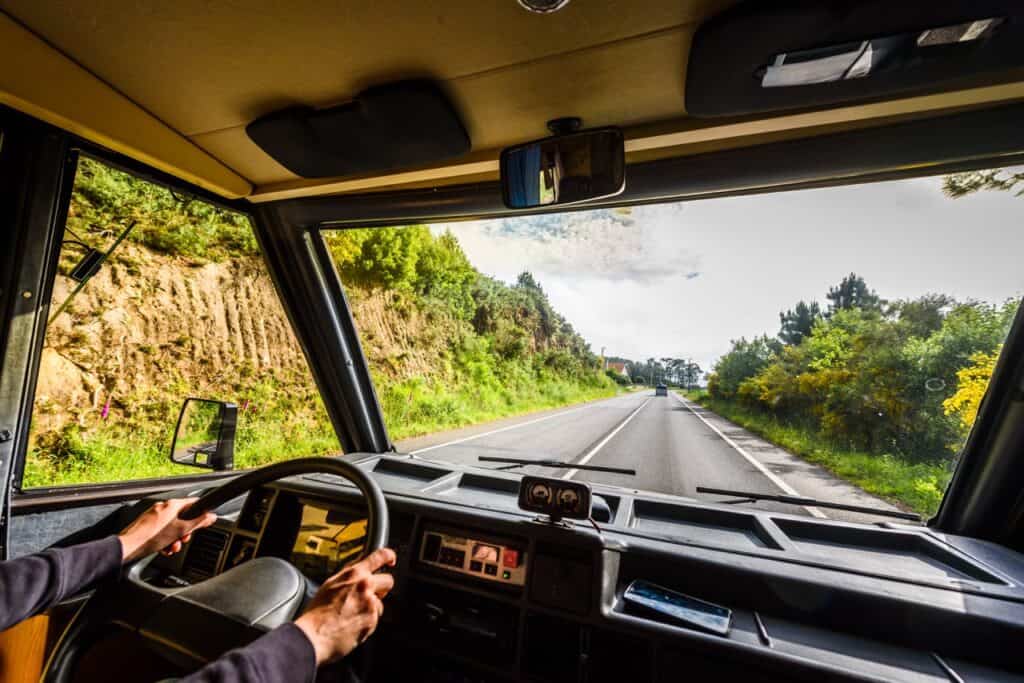
In many cases, you won’t know if the RV is in good shape until you test it out. Ask the seller if you can take it out for a short drive. If they say no without a good reason, consider that a major red flag.
Check to see if the trailer connects to a hitch smoothly and if it seems stable on the road. If you’re checking out a motorhome, listen for any concerning rattles or signs of strain.
Don’t forget to check out the living space as well! Test out the faucets, look at the floors, walls, and ceiling for any signs of mold or warping. Leave no stone unturned during your test/exploration phase. This is a good tip for anyone who wants to know how to buy an RV (whether pre-owned or new).
Perform an inspection
Now we get to one of the most important parts of any pre-owned RV sale: The inspection. Even if the model is listed for a reasonable price (considering its year) you should still perform a thorough check of the inside and outside. A salesman could be hiding serious issues under the guise of a fair price.
Knowing how to buy an RV without getting ripped off includes not buying an RV with interior or structural damage. These issues will only get worse over time and the vehicle will turn into a money pit.
There are several important areas you need to check before you even think about buying. These areas of interest include:
- De-lamination/water damage
- Mileage (or frequency of usage)
- Tires
- Mold
- Pest damage
- Window, door, and vent seals
- Black streaks
- Awning functionality
- Engine condition (if applicable)
- Water heater and pump functionality
- Roof integrity
- A/C and heating effectiveness
- Battery health
- Outlet number and functionality
- Overall stability and ability to level out
- Any stains, fading, or other aesthetic damage
Some of these issues are more important than others, but all of them could bring the value of the RV down. The most important concerns are anything that has to do with water damage and structural integrity. If you’re dealing with a motorhome, you’ll also need to make sure that the base vehicle is roadworthy and has been well-maintained.
Almost every RV has some quirks and flaws. Ask the seller about every appliance and piece of hardware in detail. If anything is rattling, blocked, or clogged, you should know about it before you buy. This is partly why a test drive is such a good idea.
Now you have some good base knowledge that will help you know how to buy an RV without getting ripped off. Never be afraid to ask questions or dig deeper. Sometimes even the seller doesn’t know there are issues if they don’t look hard enough!
Related Articles:


